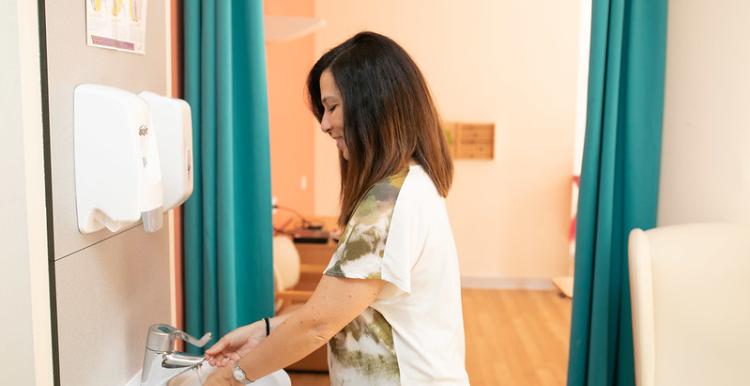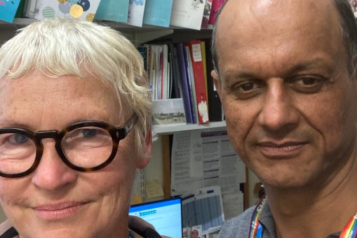Are your needs being met?

Are you getting your needs met?
Adult social care is an important issue for people in Lambeth and across the country. As more people in the population age, develop long-term illnesses or disabilities, it is crucial to ensure the social care system can support those that need it to live full, independent lives, and protect some of the most vulnerable people in society.
All kinds of people use social services or may do at some stage in their life. This includes older people who need support to live independently, people being discharged from hospital, adults with learning disabilities and those with physical and mental health issues that have a significant impact on their wellbeing.
The type of support can vary widely and includes personal care (help with washing, dressing and getting out of bed in the morning) as well as connecting people with services and facilities in the community. Social care is provided in people’s homes (domiciliary or home care), day centres, care homes and nursing homes and ‘reablement’ services designed to increase independence. The care can also include installing aids and adaptations to make someone’s home easier to live in, providing information and advice and supporting unpaid carers. Concerns about a vulnerable person being abused, neglected or otherwise mistreated can also be reported to adult social care using local safeguarding procedures.
Although health and social care services are used by people at the same time and they work closely together, they also work and are funded very differently and there are things you need to know if you are approaching adult social care for the first time.
- Unlike the NHS, adult social care is not free at the point of delivery. People applying for adult social care undergo a needs assessment and at the same time apply for the funding to pay for it (called a ‘means test’).
- Most people will have to pay a contribution towards their care, and some will be expected to pay in full. Only those with the highest needs and lowest financial assets will receive full public funding.
- Local authorities are responsible for managing social care and Lambeth council is generally your first port of call if you need help.
- Local authorities commission private care companies and charities to provide services on their behalf. They are still responsible for overseeing the services and ensuring they are delivering quality of care to their residents.

What will happen when I apply for care?
The local authority have a duty to consider your needs and your eligibility for care, and will initially speak with you to take some more information.
- They need to ensure you are speaking to the right professional or team soon after you make contact, by phone or online form.
- They should be clear about the process at each stage and communicate with you.
- They should give you the information you need to make decisions about your care, especially with regards to any financial contributions you may be expected to make.
- They should support you to engage with the application process, taking into account any access needs and/or requirements for interpretation.
- In situations where you are not eligible for care, they should make you aware of other organisations in the community that may be able to support you.
- They need to obtain your consent to make referrals sharing your personal information. They should make you aware when they are speaking with other professionals, such as your GP, and any unpaid carers in your life, ensuring that any friends or family are safe to speak with.
- They have a duty to act if they receive information that you or someone else is at risk of serious harm. They do not need your consent to do this, but should still make every effort to inform and involve you.

So what actually happens?
It’s not always easy to find out. When the decision-makers and those responsible for managing services consider adult social care, they tend to talk about meeting the needs of people who are already in the system and getting support. These are the people the local authority ‘accepts a duty towards.’
At Healthwatch Lambeth, we want to know more about how adult social care works for everyone. This includes anyone in the community who needs help but, for a variety of reasons, doesn't access care. This is called ‘unmet need.’
We want to hear from people who are not accessing adult social care for any reason or have had difficulty doing so previously. This might be because of:
- A lack of advice about local services
- Not knowing that social care can help them
- Not meeting the eligibility criteria during an assessment for care
- Issues with affordability following financial assessments
What does unmet need look like?
In 2022, Healthwatch Lambeth spoke to local people, service users and carers, who were living with some level of unmet need, which we asked them to define for themselves. We shared your stories with Healthwatch England as part of their campaign for national social care reform, to help build a picture of what life is like when you don’t get the support you need, or when the support you get just isn’t enough.
You can read more about what we got up to here:
Shining a light on the struggles surrounding social care | Healthwatch
The national picture: what we know
- Unmet need is difficult to define precisely, as everyone’s needs are different.
- The government has noted that there is a lack of data and evidence to show the full picture of the issue.
- Age UK reports that there are 1.5 million older people living with some level of unmet need in England. There are no estimates available for working-age adults under 65.
- The King’s Fund charity, monitoring national trends in adult social care, reported that more people are requesting help, particularly adults under 65. The number of people receiving long-term care has fallen, but the number of people receiving short term care has risen for all age groups, meaning generally more people are receiving support for a smaller amount of time.
You can read more about the government’s plans for adult social care and the response of Healthwatch England here:
Social care: What is in the new plan? | Healthwatch
Social care 360 | The King's Fund (kingsfund.org.uk)
In Lambeth, there are local resources that may be able to provide advice and guidance, including Centre 70, Connect Lambeth (this is a group of charities) and Age UK Lambeth.

